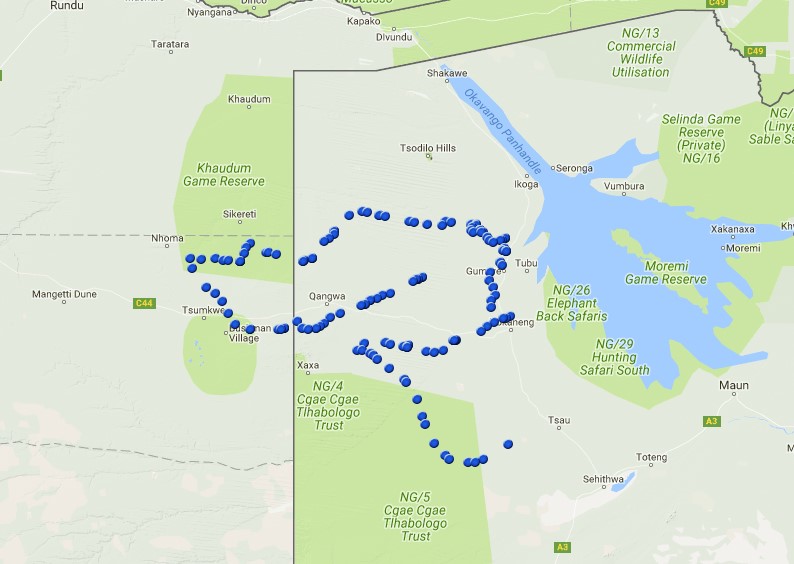|
CCB embarked on various activities to work with and support farmers in the regions of Jwaneng and Ghanzi. Improved kraaling and the use of livestock guarding dogs (LSGDs) in protecting livestock against medium sized predators are among other farming strategies that can be utilised to minimise human wildlife conflict. CCB placed 11 LSGD puppies, six males and five females mid January 2016 with various farmers in the village of Samane, in the Jwaneng area. On the 21st July 2016, in collaboration with Vetswana, all 11 LSGDs received sterilization (spay and neuter). The LSGD sterilization clinic was a success as all dogs have reported to be doing just fine after the care and all are back to their normal duties. Thank you once more to Vetswana, CCB team and the farmers for their efforts in making sure that these dogs are in a super form to perform their duties.
0 Comments
In February 2015, CCB was involved in the translocation of two groups of cheetah that had come into conflict with people. Translocating any large predator is difficult in Botswana, as there are few if any remaining areas that are suitable for this. Cheetahs need large areas for hunting, areas with good levels of prey density, low levels of competition from other predators and be away from areas with high human density. Most protected areas already have high numbers of predators and moving new individuals into these areas increases competition for resources and consequently, many translocations are not always successful. In February, it was decided through a collaborative effort by CCB, DWNP, and Beyond and Vetswana to attempt translocating these two groups into an area in the south of the Okavango Delta. Since release, survival of these individuals has been high. The release of a female and her cubs is currently going well, although one cub has been lost, the mother and remaining three cubs have settled into an area and are regularly sighted by guides and tourists. She has been seen to hunt successfully and the cubs are growing up healthy and strong. The release of two brothers in the same area, however, have struggled to find an area to settle down. This pair has roamed over considerable distances, even recently into neighbouring Namibia. Despite being released into a protected area, high competition with lions and spotted hyenas has most likely been the reason for these males to have left the release site. The males have moved in and out of both protected and non-protected land in search of areas of suitable prey and low competition over the last four months. This movement highlights the difficulty of not only finding suitable areas for release, but the difficulty for cheetahs to settle and survive in areas with people. Translocations are not the long-term solution for cheetah survival, but encouraging and developing co-existence solutions with people. However, CCB is pleased to see that in this case, the survival of these cheetahs has so far been successful.
We did it again by hosting an information stall at the recent Ghanzi agricultural show, which took place on the week of 4th - 10th July 2016. For the three days we were there, excitement reached roof level from both staff members and visitors and, we did our best to engage with all by addressing issues on threats to the long term survival of the cheetah species and ways in which farmers can utilize to protect their livestock from predation. The Ghanzi show is one event that we never miss more so that it is piled with our target audience, it never disappoints and, on top of it all, we meet and make conservation friends at the end of the day. We also took eight members of the steering committee from the Jwaneng farmers’ network who were very excited at the opportunity to network, engage and learn from the farming big shots how it is done. We believe they came back rich in knowledge and ready to test and share what they have learnt with others in their community.Thank you all for making it yet another memorable week! |
SearchArchives
May 2024
Categories |



 RSS Feed
RSS Feed
